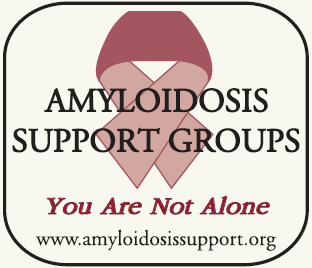A Multiple-Dose Study in Subjects With Cardiac AL and ATTR amyloidosis to Assess the Safety, Tolerability, and Pharmacokinetics of AT-02 followed by a 2 year open label study in patients with cardiac AL and ATTR
study id #: NCT05521022
condition: Amyloidosis; Systemic
status: Recruiting
purpose:AT-02 is a monoclonal antibody that is being developed to treat systemic amyloidosis by attaching to and stimulating the removal of amyloid fibrils. The goal of this study is to evaluate the safety and tolerability of multiple doses of AT-02 in patients with Cardiac AL and ATTR amyloidosis, and to assess clinical activity. Patients who participate in the Phase 1 part of the study will receive 2 infusions of AT-02 over 4 weeks, [SG1] with a follow-up at week 8. All participants will receive AT-02.
intervention: AT-02, AT-02 (Placebo)
results: https://clinicaltrials.gov/ct2/show/results/NCT05521022
last updated: June 10, 2024
start date: September 1, 2022
estimated completion: March 1, 2024
last updated: January 30, 2024
phase of development: Phase 1
size / enrollment: 100
study description: Systemic amyloidosis is an incurable disease, and about 20% of patients with cardiac or advanced kidney involvement experience early deaths (<1 year). Despite recent progress in proteasome inhibitors, chemotherapies, and immunotherapies that target plasma cells have greatly improved the prognosis of patients with systemic amyloidosis, median survival remains low at approximately five years.
AT-02 (INN: not yet available) is a full-length, humanized, recombinant immunoglobulin 1 (IgG1)-like glycoprotein monoclonal antibody (mAb) that is being developed to treat systemic amyloidosis.
This is a three-part, Phase 1 study designed to evaluate the safety, tolerability, and PK of rising single doses of AT-02 in healthy volunteers (HV) and in subjects with systemic amyloidosis (SA) and to assess the safety, tolerability, and PK of multiple doses of AT-02 in subjects with systemic amyloidosis.
Part 1 is a double-blind, single-center, single-ascending dose escalation study in HV to assess the safety, tolerability, and PK of AT-02. Healthy volunteers between 18 to 56 years of will be enrolled in the Part 1 study.
Part 2 is an open-label, single-ascending dose escalation study in subjects with systemic amyloidosis to assess the safety, tolerability, and PK of AT-02 and to identify a maximum tolerated dose (MTD). Subjects with SA over 18 years of age will be involved in the Part 2 study.
Part 3 is an open-label, multiple-ascending dose, dose escalation study in subjects with systemic amyloidosis to assess the safety, tolerability, PK, PD, and clinical activity of multiple doses of AT-02. Subjects with SA ≥18 and ≤85 years of age will be involved in the Part 3 study.
primary outcomes:
- Incidence and severity of treatment-emergent adverse events (TEAEs) from Day 1 to end of study (EOS).
Safety will be assessed by review of clinical laboratory parameters and incidence and severity of TEAEs (graded using Common Terminology Criteria for Adverse Events (CTCAE) version 5). - Up to 57+/-7 days
Incidence of dose-limiting toxicities (DLTs) in subjects with systemic amyloidosis.
A DLT is defined as any related TEAE with a National Cancer Institute (NCI) CTCAE version 5.0 Grade ≥3 which also represents a shift from Baseline clinical status of >1 NCI CTCAE Grade. - Up to 85+/-7 Days
Incidence and frequency of abnormal and clinically significant abnormal clinical laboratory parameter values. - Up to 85+/-7 Days
Incidence of treatment-emergent anti-drug antibodies (ADA)
The number and percentage of subjects who develop detectable ADA will be summarized by dose cohort. - Up to 85+/-7 Days
secondary outcomes:
- To determine the plasma pharmacokinetics (PK) profile of AT-02
Up to 85+/-7 Days - To determine the plasma pharmacokinetics (PK) profile of AT-02
Up to 85+/-7 Days - To determine the plasma pharmacokinetics (PK) profile of AT-02
Up to 85+/-7 Days - To determine the plasma pharmacokinetics (PK) profile of AT-02
Up to 85+/-7 Days - To determine the plasma pharmacokinetics (PK) profile of AT-02
Up to 85+/-7 Days - To determine the plasma pharmacokinetics (PK) profile of AT-02
Up to 85+/-7 Days
inclusion criteria:
• Eligible Sexes: all
Eligibility Criteria for Healthy Volunteers:
Healthy volunteers are eligible to be included in the study only if all the following criteria apply:
Understands the study procedures and can give signed informed consent
Male or female between >18 and <56 years of age.
Willing and able to comply with this protocol and informed consent and be available for the entire duration of the study.
Willing to abstain from alcohol and strenuous physical activity (i.e., strenuous or unaccustomed weightlifting, running, bicycling, etc.) from 48 hours prior to study treatment administration until discharge from the clinical unit and prior to each outpatient visit.
In good general health, determined by no clinically significant findings in the opinion of the Investigator from medical history, physical examination, 12-lead electrocardiogram (ECG), clinical laboratory findings, and vital signs at Screening and Phase 1 unit Check-in.
Has body mass index (BMI) of 18 to 32 kg/m2, inclusive.
Women of childbearing potential (WOCBP)
WOCBP must have a negative serum or urine pregnancy test within 24 hours prior to the start of study drug.
Must not be breastfeeding, lactating, or planning a pregnancy during the study period.
WOCBP who are not exclusively in same-sex relationships must agree to remain abstinent (complete avoidance of heterosexual intercourse) or use adequate contraceptive methods, defined as use of a condom by the male partner combined with use of a highly effective method of contraception by the female partner, during the treatment period and for at least 105 days after the last dose of study intervention.
Postmenopausal females:
a) Postmenopausal females under the age of 55 years must have a documented serum follicle stimulating hormone (FSH) level >40 mIU/mL to confirm menopause
Women of non-childbearing potential (WONCBP) and female participants with vasectomized male partners:
a) WONCBP must agree to remain abstinent (complete avoidance of intercourse) or the male partners of WONCBP participants must wear a condom to protect against the transfer of study intervention through bodily fluids during the treatment period and for at least 105 days after the last dose of study intervention.
Male participants:
Male participants must inform their female sexual partners who are WOCBP of the contraceptive requirements of the protocol and are expected to adhere to using contraception with their partner.
Male participants with female sexual partners who are WOCBP must agree to remain abstinent (complete avoidance of heterosexual intercourse) or use adequate contraceptive methods, defined as use of a condom by the male partner combined with use of a highly effective method of contraception by the female partner, during the treatment period and for at least 165 days after the last dose of study intervention.
Male participants must not donate sperm for at least 165 days after the last dose of study intervention.
Male participants with potentially postmenopausal partners who are under the age of 55 years must use condoms unless their partner's postmenopausal status has been confirmed by FSH level.
Male participants in same-sex relationships or in relationships with WONCBP must agree to remain abstinent (complete avoidance of intercourse) or use a condom to prevent exposure of the partner to study intervention through ejaculate/seminal fluid during the treatment period and for at least 165 days after the last dose of study intervention.
Eligibility Criteria for Part 2 Subjects with Systemic Amyloidosis
Subjects with systemic amyloidosis are eligible to be included in the study only if all the following criteria apply:
Understands the study procedures and can give signed informed consent
Male or female ≥18 and ≤80 years of age.
Mini Mental Status Exam (MMSE) score >27 (subjects >55 years of age only).
Has a confirmed diagnosis of AL, ATTR, or other form of systemic amyloidosis, based on any one of the following:
A histologic confirmation with a biopsy containing deposits of apple-green birefringent, Congophilic material or other amyloid staining (i.e., thioflavin T or sulfated alcian blue) with confirmatory immunohistochemistry, mass spectrometry or identification of an amyloidogenic genetic variant;
Genetic screening with presence of amyloid-related pathology; or
Amyloid-specific imaging study (e.g., bone scintigraphy and echocardiogram/CMR consistent with ATTR cardiac amyloid).
Subjects with AL systemic amyloidosis must have achieved a hematologic very good partial response (VGPR) or complete response (CR) based on their most recent assessment (e.g., difference in free light chains <40 mg/L) and within 12 months of Screening and may be receiving maintenance daratumumab.
Subjects with ATTR systemic amyloidosis may be receiving a TTR silencer (e.g., inotersen, vutrisiran, or patisiran) or a stabilizer (e.g., tafamadis or diflunisal), but not both.
Women of childbearing potential (WOCBP):
WOCBP must have a negative serum or urine pregnancy test within 24 hours prior to the start of study treatment.
Must not be breastfeeding, lactating, or planning a pregnancy during the study period.
WOCBP who are not exclusively in same-sex relationships must agree to remain abstinent (complete avoidance of heterosexual intercourse) or use adequate contraceptive methods, defined as use of a condom by the male partner combined with use of a highly effective method of contraception by the female partner, during the treatment period and for at least 105 days after the last dose of study intervention.
Women of non-childbearing potential (WONCBP), and female participants with vasectomized male partners:
WONCBP must agree to remain abstinent (complete avoidance of intercourse) or the male partners of WONCBP participants must wear a condom to protect against the transfer of study intervention through bodily fluids during the treatment period and for at least 105 days after the last dose of study intervention.
Postmenopausal females must have a documented serum FSH level >40 mIU/mL at Screening to confirm menopause.
Male participants:
Male participants must inform their female sexual partners who are WOCBP of the contraceptive requirements of the protocol and are expected to adhere to using contraception with their partner.
Male participants with female sexual partners who are WOCBP must agree to remain abstinent (complete avoidance of heterosexual intercourse) or use adequate contraceptive methods, defined as use of a condom by the male partner combined with use of a highly effective method of contraception by the female partner, during the treatment period and for at least 165 days after the last dose of study intervention.
Male participants must not donate sperm for at least 165 days after the last dose of study intervention.
Male participants in same-sex relationships or in relationships with WONCBP, must agree to remain abstinent (complete avoidance of intercourse) or use a condom to prevent exposure of the partner to study intervention through ejaculate/seminal fluid during the treatment period and for at least 165 days after the last dose of study intervention.
Eligibility Criteria for Part 3 Subjects with Systemic Amyloidosis
Subjects with systemic amyloidosis are eligible to be included in the study only if all the following criteria apply:
Understands the study procedures and can give signed informed consent.
Male or female ≥18 and ≤85 years of age.
Has a confirmed diagnosis of ATTR cardiomyopathy (ATTR-CM), AL, or other form of systemic amyloidosis
Imaging evidence of organ amyloid deposits.
For ATTR cardiomyopathy subjects, genetic testing confirming wild type ATTR or identification of an amyloidogenic genetic variant is required. If genetic testing has not been performed prior to screening, then the test may be ordered during screening
Subjects with ATTR cardiomyopathy may be receiving a TTR silencer (e.g., inotersen, vutrisiran, or patisiran) or a stabilizer (e.g., tafamadis or diflunisal), but not both.
Subjects with AL systemic amyloidosis may be receiving maintenance daratumumab and must have
Achieved a hematologic very good partial response (VGPR) or complete response (CR) based on their most recent assessment (e.g., difference in free light chains <40 mg/L) within 12 months of Screening or
Achieved a partial hematologic response, is in stable condition (defined as >6 months without clonal or amyloidotic organ progression), is not receiving plasma cell directed (PCD) therapy and is not expected to require PCD therapy for the duration of the study.
Women of childbearing potential (WOCBP):
WOCBP must have a negative serum or urine pregnancy test within 24 hours prior to the start of study treatment.
Must not be breastfeeding, lactating, or planning a pregnancy during the study period.
WOCBP who are not exclusively in same-sex relationships must agree to remain abstinent (complete avoidance of heterosexual intercourse) or use adequate contraceptive methods, defined as use of a condom by the male partner combined with use of a highly effective method of contraception by the female partner, during the treatment period and for at least 105 days after the last dose of study intervention.
Women of non-childbearing potential (WONCBP), and female participants with vasectomized male partners:
WONCBP must agree to remain abstinent (complete avoidance of intercourse) or the male partners of WONCBP participants must wear a condom to protect against the transfer of study intervention through bodily fluids during the treatment period and for at least 105 days after the last dose of study intervention.
Postmenopausal females must have a documented serum FSH level >40 mIU/mL at Screening to confirm menopause.
Male participants:
Male participants must inform their female sexual partners who are WOCBP of the contraceptive requirements of the protocol and are expected to adhere to using contraception with their partner.
Male participants with female sexual partners who are WOCBP must agree to remain abstinent (complete avoidance of heterosexual intercourse) or use adequate contraceptive methods, defined as use of a condom by the male partner combined with use of a highly effective method of contraception by the female partner, during the treatment period and for at least 165 days after the last dose of study intervention.
Male participants must not donate sperm for at least 165 days after the last dose of study intervention.
Male participants in same-sex relationships or in relationships with WONCBP must agree to remain abstinent (complete avoidance of intercourse) or use a condom to prevent exposure of the partner to study intervention through ejaculate/seminal fluid during the treatment period and for at least 165 days after the last dose of study intervention.
sponsor: Attralus, Inc.
contacts: Scott Stephens, RN, 3212287400, [email protected]
trial center locations: United States,Australia
-
United States, Kansas
Midwest Heart and Vascular
Vasvi Singh, Dr, [email protected]
-
United States, Maryland
Johns Hopkins
Joban Vaishnav, Dr, [email protected]
-
United States, Ohio
Cleveland Clinic
Mazen Hanna, Dr, [email protected]
-
United States, Oregon
OHSU (Oregon Health & Science University)
Ahmad Masri, Dr, [email protected]
-
United States, Pennsylvania
Penn Presbyterian Medical Center
Brian Drachman, Dr, [email protected]
-
Australia, Queensland
Princess Alexandra Hospital
Dariusz Korczyk, Dr
-
Australia, Queensland
Q-Pharm Pty Ltd
Richard Friend
-
Australia, South Australia
Flinders Medical Centre
Joseph Selvanayagam
-
Australia, Victoria
Box Hill Hospital
Simon Gibbs
-
Australia, Western Australia
Royal Perth Hospital
Graham Hillis
Interested in learning more about this trial?
Fill out this form to speak with a trial coordinator to see if this trial is right for you.
To improve your experience on this site, we use cookies. This includes cookies essential for the basic functioning of our website, cookies for analytics purposes, and cookies enabling us to personalize site content. By clicking on 'Accept' or any content on this site, you agree that cookies can be placed. You may adjust your browser's cookie settings to suit your preferences.
More information
The cookie settings on this website are set to "allow cookies" to give you the best browsing experience possible. If you continue to use this website without changing your cookie settings or you click "Accept" below then you are consenting to this.








